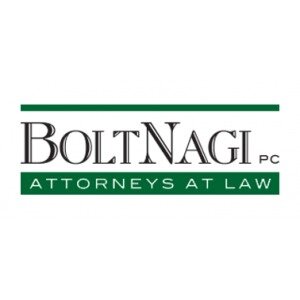Best Pension Lawyers in British Virgin Islands
Share your needs with us, get contacted by law firms.
Free. Takes 2 min.
Or refine your search by selecting a city:
List of the best lawyers in British Virgin Islands
About Pension Law in British Virgin Islands
The British Virgin Islands (BVI) is a well-known offshore financial center, but it also has a developing structure when it comes to pension laws. Pension plans in the BVI primarily include employer-sponsored and private personal pension schemes. Despite its small size, the financial services sector in the BVI has matured, providing a framework for pension regulations aimed at safeguarding the retirement savings of its residents. The pension laws in the BVI serve to outline the requirements and protections for contributors and beneficiaries, to ensure that benefits are managed effectively and securely.
Why You May Need a Lawyer
Seeking legal advice in pension matters can be crucial in various situations. You might need a lawyer if you are setting up a pension plan for employees, encountering issues with your employer's pension contributions, or if you're unsure about the tax implications of your pension benefits. A lawyer specializing in pensions can also assist with taking action if your pension rights are not being respected or if you are dealing with complexities surrounding the distribution of pension benefits during divorce or inheritance disputes.
Local Laws Overview
The key aspects of pension laws in the British Virgin Islands focus on contribution requirements, the management of the pension funds, and the rights of beneficiaries. The Pension Act requires employers to contribute a certain percentage of an employee's salary to a pension fund. There are clear guidelines on how pension funds should be managed to prevent mismanagement. The legal framework also includes provisions for investment rules, reporting requirements, and ensuring the portability of pensions. The BVI further emphasizes transparency and accountability among pension fund managers to protect the interests of contributors.
Frequently Asked Questions
How does the pension system work in the BVI?
The pension system generally operates through employer-sponsored pension plans and personal savings plans. Employers are typically required to contribute a percentage of their employee's salaries towards a pension fund.
Is it mandatory for all employers in the BVI to offer pension benefits?
Depending on the size and type of the business, there can be specific requirements for employers to provide pension benefits. However, not all businesses are mandated by law.
Can an expatriate worker in the BVI enroll in a local pension plan?
Yes, expatriate workers may enroll in local pension plans, depending on the employer’s policies and the expatriate's residency status.
What legal protections exist for pension beneficiaries?
Pension laws in the BVI include provisions to protect the rights of pension beneficiaries, including transparency in fund management and clear guidelines for fund distribution.
Are there penalties for employers who fail to comply with pension laws?
Employers who fail to comply with pension laws can face fines, penalties, and legal actions initiated by employees or regulatory bodies.
How are pension plans taxed in the BVI?
There are specific tax implications related to contributions and benefits, hence consulting a legal expert or financial advisor for accurate advice on taxation is recommended.
What happens to my pension if I leave the BVI?
The pension laws provide mechanisms for transferring or maintaining pensions if a person leaves the BVI; however, specific terms depend on the plan.
Can pension funds be invested abroad?
Yes, pension funds can generally be invested abroad but must comply with BVI regulations regarding overseas investments.
How are disputes involving pension handled?
Disputes can be resolved through negotiations, mediation, or legal proceedings. Engaging a pension lawyer can help navigate these processes effectively.
What should I do if I believe my pension rights are violated?
If you suspect your pension rights are violated, it is advisable to contact a lawyer who specializes in pension law to assess your situation and suggest the best course of action.
Additional Resources
Individuals seeking more information on pensions in the BVI can consult the BVI Financial Services Commission, which regulates financial services including pensions. Additionally, engaging with law firms that specialize in business and pension law can provide detailed insights and support. Professional organizations and advocacy groups for workers can also offer guidance and resources.
Next Steps
If you require legal assistance related to pensions in the BVI, start by consulting with a lawyer who has expertise in BVI pension law. Prepare all relevant documentation related to your pension plan or issues you are facing. Consider contacting local regulatory bodies to seek advice or to report non-compliance by an employer. Understanding your rights and obligations thoroughly will be beneficial, so engaging in preliminary research or consultations with professional advisors is advised.
Lawzana helps you find the best lawyers and law firms in British Virgin Islands through a curated and pre-screened list of qualified legal professionals. Our platform offers rankings and detailed profiles of attorneys and law firms, allowing you to compare based on practice areas, including Pension, experience, and client feedback.
Each profile includes a description of the firm's areas of practice, client reviews, team members and partners, year of establishment, spoken languages, office locations, contact information, social media presence, and any published articles or resources. Most firms on our platform speak English and are experienced in both local and international legal matters.
Get a quote from top-rated law firms in British Virgin Islands — quickly, securely, and without unnecessary hassle.
Disclaimer:
The information provided on this page is for general informational purposes only and does not constitute legal advice. While we strive to ensure the accuracy and relevance of the content, legal information may change over time, and interpretations of the law can vary. You should always consult with a qualified legal professional for advice specific to your situation.
We disclaim all liability for actions taken or not taken based on the content of this page. If you believe any information is incorrect or outdated, please contact us, and we will review and update it where appropriate.
Browse pension law firms by city in British Virgin Islands
Refine your search by selecting a city.











